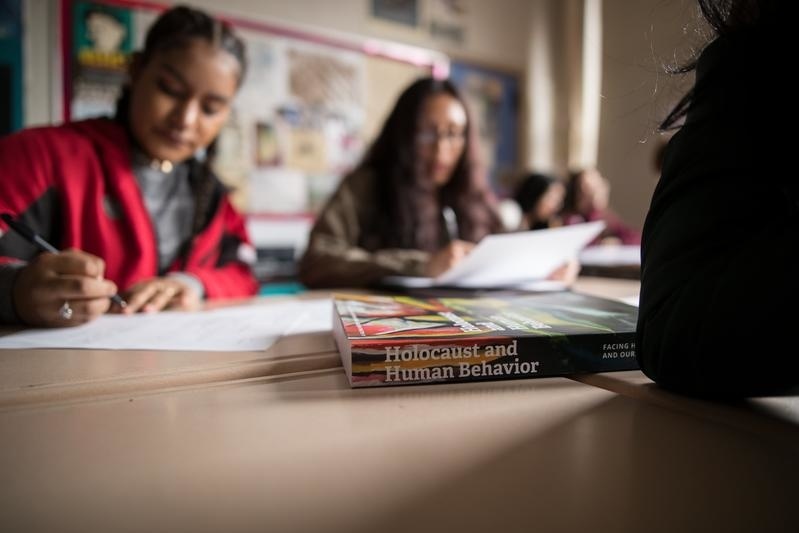
Earlier this month, The New York Times reported that Holocaust education is lacking among younger generations. Some can't even identify what Auschwitz was. At Facing History, we've always known there is more to remembering the past than just reciting names and dates. There is an essential need to connect those details to the complex context in which they existed. The Holocaust did not just happen. Nor did other genocides before or after. Instead, they were built upon the steady unrest, hatred, and propaganda that culminated in the tragic loss of human lives. All were based on trivial characteristics deemed unworthy by a society.
Facing History's President and CEO, Roger Brooks, felt the need to weigh in on this unsettling survey. Read his piece on Cognoscenti, the opinion page for WBUR, Boston's NPR news outlet. He provides insight on why the Holocaust seems to be fading from memory and how we can counteract this through strengthened curriculum that challenges our students to think critically about why genocide happens.
Read the full piece on Cognoscenti here.
Lead your students through a study of the Holocaust that asks what this history can teach us about the power and impact of choices with our resource, Holocaust and Human Behavior.


